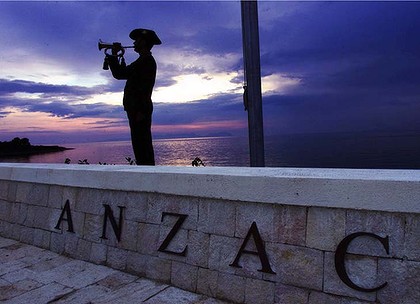The Dominions and WW2 November 6, 2014
Author: Beach Combing | in : Contemporary, Modern , trackbackThe Dominions were a precise administrative category within the British Empire. They referred to the territories that had reached, according to omniscient London, the ability to govern themselves with minimum interference from the motherland. With many of the racist assumptions of the late nineteenth and early twentieth centuries it was believed that only white populations had this potential to manage their own affairs, at least over the short term, and so Australia, Canada (and associated areas),* New Zealand and South Africa were the only dominions by the time the First World War broke out: Ireland would soon join them but dominion-status for Eire was a convenient half way-house on its way to total independence, a leash that it could gnaw away at and that it would eventually break. The British Empire had many problems, but Britain’s establishment had at least learnt one lesson from the American Revolutionary War. You cannot indefinitely keep colonies in bondage as tax cows. Dominion-status then was an effective way to guarantee autonomy without noisome rebellions and, yet, retain the loyalty of the territories in question and that loyalty would prove a godsend in Britain’s two must gruesome martial adventures: the First and Second World War.
That the Dominions piled in obediently when Britain declared war in 1914 is not perhaps so very remarkable (with the exception of South Africa, who a mere generation before had had a brutal punch-up with Britain): but it is difficult not to be awed by the magnitude of that loyalty as Dominion troops took boats from all corners of the world to serve in the oblivion of the trenches and on horrid Turkish spits: ‘from little towns in a far land we came…’. Their presence there mattered, of course. There is a case to be made that Dominion troops (perhaps particularly the Pacific variety) were the best English-speaking soldiers in both world wars. But what is truly astounding is how quickly and completely the four territories answered the motherland’s call in 1939. Both New Zealand and Australia declared war against Germany after brief cabinet meetings once the wire with the news had arrived. South Africa took a couple of days, only declaring war after a democratic Coup d’Etat. Canada, meanwhile, took a week: the need to square the French-speaking minority meant that more care had to be taken to guarantee consensus.
It is true that constitutionally speaking the Dominions were at war when Britain was at war. But the leaders of the Dominions knew that there were other options. South Africa had particularly made it clear that she would not go to war easily: if Britain had declared war over Czechoslovakia, say, even Smuts would not have been able to bring the country in. But all plunged into a terrifying conflict with grit. ‘King George VI of England did not ask us to declare war for him—we asked King George VI of Canada to declare war for us’; ‘It is with gratitude in the past, and with confidence in the future, that we [New Zealand] range ourselves without fear beside Britain, where she goes, we go! Where she stands, we stand!’; and, for Australia, Menzies’ softer ‘There can be no doubt that where Great Britain stands, there stands the people of the entire British world.’ In any circumstances this would be remarkable. It is all the more impressive after the wanton murder of the First World War and particularly extraordinary in the case of New Zealand and Australia, who both had one worried eye trained towards samurai with aircraft carriers towards the north. Jungle fighting in Papua New Guinea was less, remember, than three years away…
Of course, the UK repaid this loyalty thirty years later when she joined the then European Community, tearing up most trade agreements with the countries who had rushed to her succour. It is difficult to know what, in the end, take the breath away more, the Dominions’ loyalty in 1939 or Britain’s easy perfidy in 1970: drbeachcombing AT yahoo DOT com
* for associated areas see Dennis comments below.
6 Nov 2014: Dennis speaks up for Newfoundland. ‘Very inaccurate and disappointing blog tonight :(. What the h*ll does “Canada ((and associated areas)” mean? Newfoundland was a dominion in its own right as of 1907 – not in any way associated with Canada’s status. You may do some research to find that Newfoundland’s contribution of men and materiale to the WWI effort was the greatest per capita within the entire British Empire. Your incorrect statement is truly offensive and particularly insensitive as we prepare for November 11 celebrations to honour the thousands of Newfoundlanders who gave their lives as members of the the Royal Naval Reserve and the legendary Royal Newfoundland Regiment ( the only North American force to participate in the Gallipoli Campaign) who went on to win battle honours in France and Belgium along the “Trail of the Caribou” until 1918 to become the only fighting unit granted the title “Royal” by George V during the war itself . These heroic volunteers were supported by the documented efforts of thousands of men and women on the home front who mobilized their entire society in a ‘total war effort’ to provide for their soldiers and sailors from Newfoundland. So remarkable was their contribution that at the beginning of WWII, Winston Churchill is quoted to have .said, “Send me the Newfoundlanders – the best small boatmen in the world.”‘ Thanks and apologies to Dennis (and Newfoundlanders) who is in the right here.
30 Oct 2015: Jiamond writes in. ‘You are rightish about Ireland not being a ‘true’ dominion, but let’s not forget that hundreds of thousands of Irish men fought for the United Kingdom in the war. Perhaps 50,000 fought in British uniforms, often suffering persecution in their homeland after the war.



